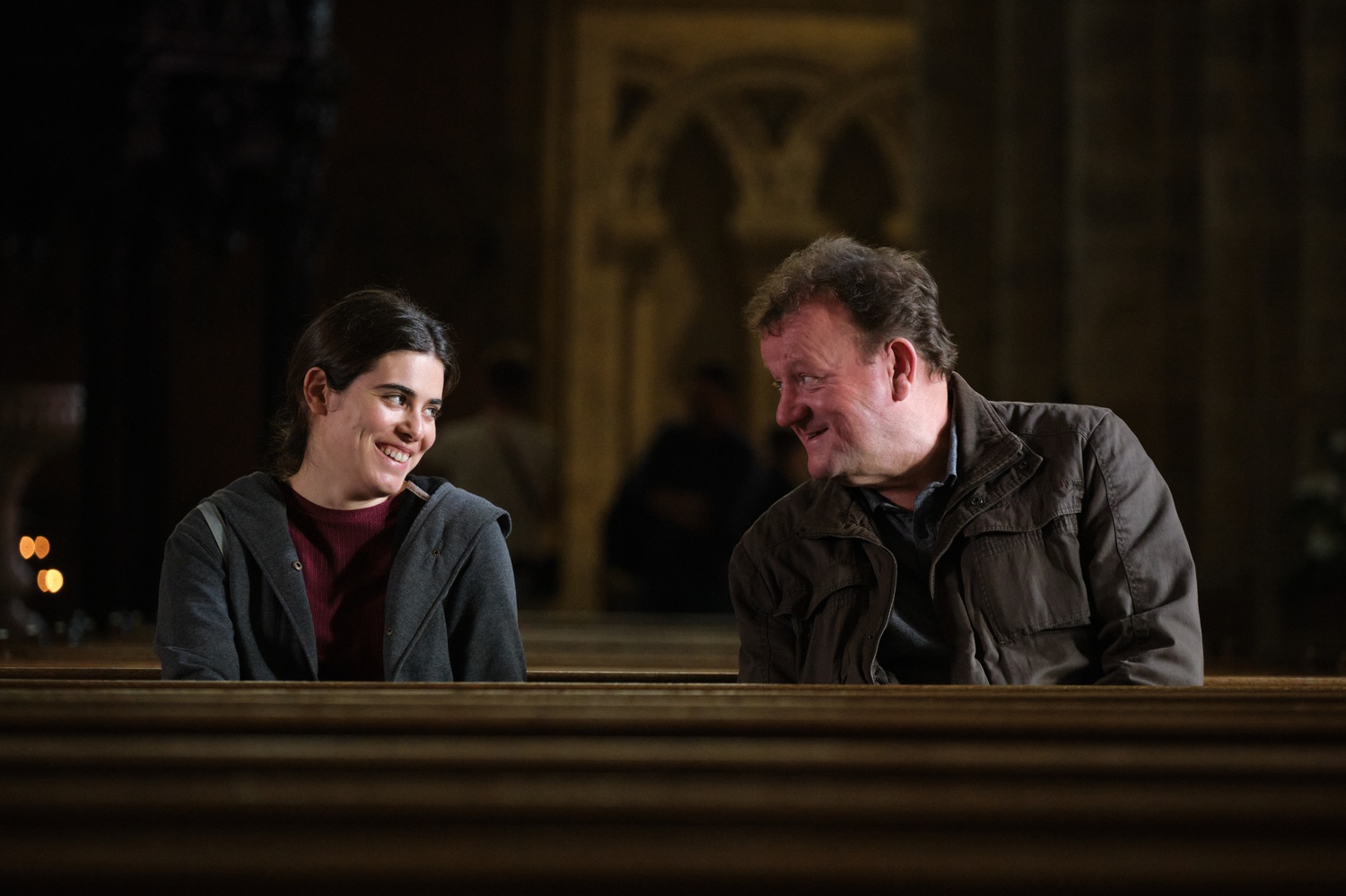
News
Harvard Quietly Resolves Anti-Palestinian Discrimination Complaint With Ed. Department

News
Following Dining Hall Crowds, Harvard College Won’t Say Whether It Tracked Wintersession Move-Ins

News
Harvard Outsources Program to Identify Descendants of Those Enslaved by University Affiliates, Lays Off Internal Staff

News
Harvard Medical School Cancels Class Session With Gazan Patients, Calling It One-Sided

News
Garber Privately Tells Faculty That Harvard Must Rethink Messaging After GOP Victory
From Cannes: Trite and in Poor Taste with ‘The Old Oak’
Dir. Ken Loach — 1.5 Stars

Set in a poor mining town in the North of England in 2016, “The Old Oak” follows the conflict that arises when Syrian refugees arrive in the already impoverished area. Though it tries to manufacture a narrative of togetherness and hope, the film fails to tell a coherent story and meaningfully engage with the issues it claims to elevate.
TJ (Dave Turner) — owner of the titular pub that is the last gathering place in a town that has been struggling since the mines closed — is simultaneously presented as a pillar of the community and someone who has been beaten down by circumstance and is just trying to get by. The plot revolves around the pub owner as everyone clusters around him to share their opinions on the new developments in the town, with characters appearing and disappearing with problems at random. Then comes along Yara (Ebla Mari) on a bus of Syrian refugees. Before she even steps off into this new place, the aspiring photographer is accosted by a discontented local who smashes her camera. TJ is initially hesitant about intervening, but ultimately decides to help her to protect the culprit. The xenophobia and racism displayed by the small town community is never meaningfully interrogated, appearing and vanishing as the narrative sees fit. Through clumsily showcasing many of the hardships already felt in this mining town community, “The Old Oak” blindly attempts to illustrate that everyone is the same and everything will be fine.
Though there may be an emotional resonance between the poverty that resulted from — and still exists — due to the decimation of the mining industry during Margaret Thatcher’s PM-ship and the experiences of Syrian refugees, it’s disingenuous to present these as equivalent experiences, especially given that many of the refugees are similarly living in poverty after being forced to flee their country. By creating these false equivalences, there is no grace given to either struggle. And though trying to integrate these communities is repeatedly touted as important, the endeavors succeed or fail at random without much effort from the main characters, with the makeup of the background characters changing according to how successful this endeavor is supposed to appear.
In general, the overall acting of the cast leaves a lot to be desired. In group scenes everyone is at attention, nervously awaiting their line, and the line delivery is so alternately hesitant and forceful that it wouldn’t even belong on a soap opera akin to “Hollyoaks.” Scenes in the pub are the worst offenders, but many of the actors appear like they were woefully underprepared for their roles. None of this is helped by the horrendous editing as all scenes start a few seconds too soon and end a few seconds too late, resulting in embarrassing attempts at ad libbing agreement or background noise. “The Old Oak” also suffers without a fleshed out score, leaving the film nowhere to look to mask the recurring awkwardness.
The plot similarly fails to avoid meaningless tangents. By the halfway point, the only descriptor is emotional exploitation as the film in detail describes events that are sad regardless of the quality of the production for truly no reason as they do not relate to any of the core issues at hand. This game of tragedy bingo does not create an engaging narrative, and the forays into interpersonal drama and betrayal between poorly drawn characters who have had limited interactions is tedious instead of affecting. The best scenes by far are those with Yara’s family at her house, offering reprieve from the suffering as her family believably open up and choose to share parts of themselves and Mari shines as a hard-working eldest daughter devoted to keeping her family together.
Unfortunately, scenes like this are in the minority, as for the majority of the film characters spell out their thoughts and the social issues they are being affected by. This lack of subtlety is exhausting, and makes it hard to connect with characters who should, on paper, have interesting and meaningful stories. The random moments of melodrama do not help this lack of detail, and the sheer number of minor characters clutter the town and make it hard to connect with the community on display.
To add insult to injury, “The Old Oak” is far too long, stretching over a two-hour runtime that it in no way earned. By its end, nothing has been resolved, and it is hard to believe the film ever had a completed script, let alone one before production began. Things happen because it was time to actually get somewhere in the narrative, but the film has failed to say or show anything noteworthy.
The subject matter is especially topical given Russia’s invasion of Ukraine, seeing as well over 100,000 Ukrainian people have arrived in the UK since March 2022. Discussions around the oxymoronic culture of hope and despair in many former mining towns today and the difficulties of being a refugee and finding a new home in the UK are incredibly important discussions to be had, so it is extremely disappointing that “The Old Oak” had a perfect opportunity to do so but chose not to. These are events that deserve to be remembered and dramatized with grace and care, not relegated to the background in favor of meaningless trauma exploitation and ineffective filmmaking.
—Staff Writer Millie Mae Healy can be reached at milliemae.healy@thecrimson.com.
Want to keep up with breaking news? Subscribe to our email newsletter.
